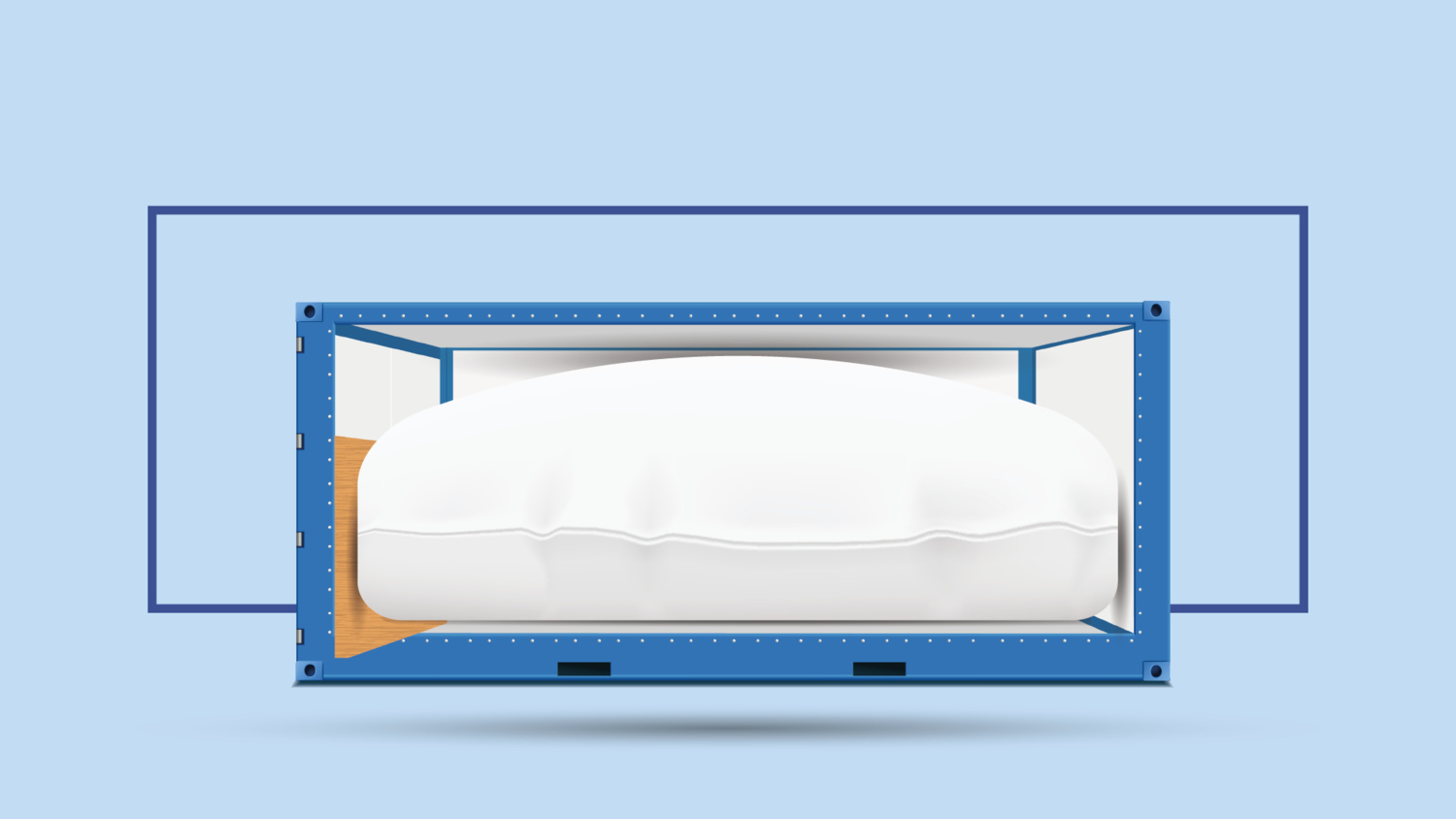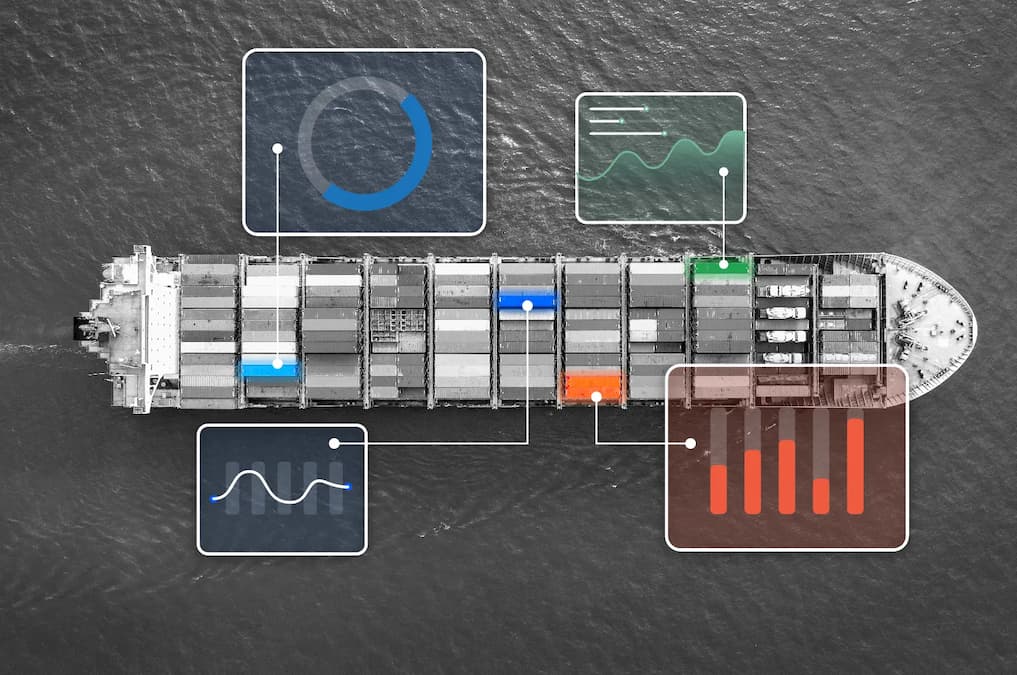Setting new standards in bulk liquid transport with flexitanks
.jpg)
As the logistics industry evolves, the quest for innovative, efficient, and safe methods to transport bulk liquids becomes more pressing. Enter flexitanks: when paired with AELER containers, they offer a cost-effective solution that challenges traditional shipping methods like drums and ISO tanks.
This article explores how integrating flexitanks with AELER containers enhances bulk liquid transport by significantly increasing payload, offering logistics professionals, supply chain managers, and decision-makers safer, more sustainable, and cost-efficient options.
Flexitanks explained: affordable solutions for bulk liquid transport
Defined by the Container Owners Association (COA) as "a large bladder with valve(s) that is designed to fit inside a general-purpose freight container and operates as part of a system which includes the container, flexitank, its fittings, and restraining system," the flexitank is a testament to innovation in liquid cargo transportation.
Essentially, a flexitank is a large bag, often made of polyethylene, capable of accommodating volumes of up to 24,000 litres. It fits snugly within a standard 20-foot dry-box container, maximising space utilisation and ensuring secure containment of liquids during transit.
Why flexitanks: key benefits for modern logistics
Increased payload and lower cost per ton
The primary advantage of utilising flexitanks lies in their ability to maximise cargo capacity while minimising costs. Compared to alternative methods such as plastic barrels and steel drums, flexitanks offer significant space savings. While a conventional twenty-foot shipping container can hold around 9,900 litres of wine on pallets, a flexitank can carry between 16,000 to 26,000 litres (28,000 with an AELER container). This effectively doubles the volume of liquid transported, saving precious cargo space and translating into tangible cost savings in shipping expenses.
Environmental benefits
In addition to cost efficiency, flexitanks also deliver significant environmental benefits, making them a responsible choice for liquid transportation. Their increased capacity means fewer shipments are required to transport the same volume of liquid, substantially reducing carbon emissions. Studies have shown that flexitanks can reduce carbon emissions by up to 40%, equivalent to approximately two kilograms of CO2 per kilometre travelled. By minimising environmental impact while maximising efficiency, flexitanks emerge as a solution that aligns with the growing emphasis on sustainability in the logistics industry.
From olive oil to fertilisers: flexitank diverse use in industrial applications

Flexitanks are versatile, making them ideal for transporting a wide range of non-hazardous and non-flammable liquid commodities. This includes both non-edible and food-grade liquids, offering a high degree of flexibility and efficiency in bulk liquid logistics.
Common non-edible liquids transported in flexitanks include waxes, emulsions, herbicides, fertilisers, heating oil, diesel, gasoline, paints, liquid detergents, transformer oils, non-hazardous chemicals, printing ink, and lubricants.
Additionally, flexitanks are favoured for transporting a variety of food-grade liquids. These include corn syrup, drinking water, various edible oils like coconut and palm oil, concentrates, tomato paste, fruit juices, fish oils, alcohol, wine, water, liquid sugar, and milk. In fact, 30% of worldwide wine shipments utilise flexitanks for transportation, highlighting their critical role in the global wine market by providing an efficient and quality-preserving transport solution.
Elevating flexitank performance and safety with AELER’s Unit One container
However, like any logistics solution, flexitanks are not perfect. Bulging is a common issue, as the pressure can cause sidewall steel panels to deform and exceed ISO external dimensions and tolerances, potentially leading to permanent structural damage. AELER addresses this problem by building its shipping containers with composite walls 65% stronger than standard steel, significantly reducing the risk of bulging or deformation.
With its more robust structure, cargo owners can safely increase the payload to 28 tons when loading an AELER container with a flexitank, offering greater flexibility and efficiency in liquid cargo transportation. This ensures the safe transportation of heavier loads and reduces transportation costs by decreasing the required trips.
Moreover, this robust construction makes AELER containers less likely to suffer unnoticed structural damage that could lead to failure in critical situations. Consequently, these shipping containers are safer for prolonged use compared to standard ones.
Setting the standard: flexitank transportation made easy with AELER
Flexitanks offer an unparalleled opportunity to transport liquid cargo more efficiently and at a lower cost while maintaining high environmental standards. AELER amplifies these advantages by addressing common issues associated with flexitank use, such as bulging and potential structural failures, through robust container design. This innovation enhances safety and empowers cargo owners to confidently expand their operations by utilising AELER's capabilities to handle increased payloads and reduce operational costs.
Contact us to start making your bulk liquid transportation process easier, faster, and more sustainable!
Related resources


Case study: cutting costs and maximising efficiency in bulk liquid transportation
Case study: cutting costs and maximising efficiency in bulk liquid transportation


The new cool kid on the block: natively insulated shipping containers
The new cool kid on the block: natively insulated shipping containers







